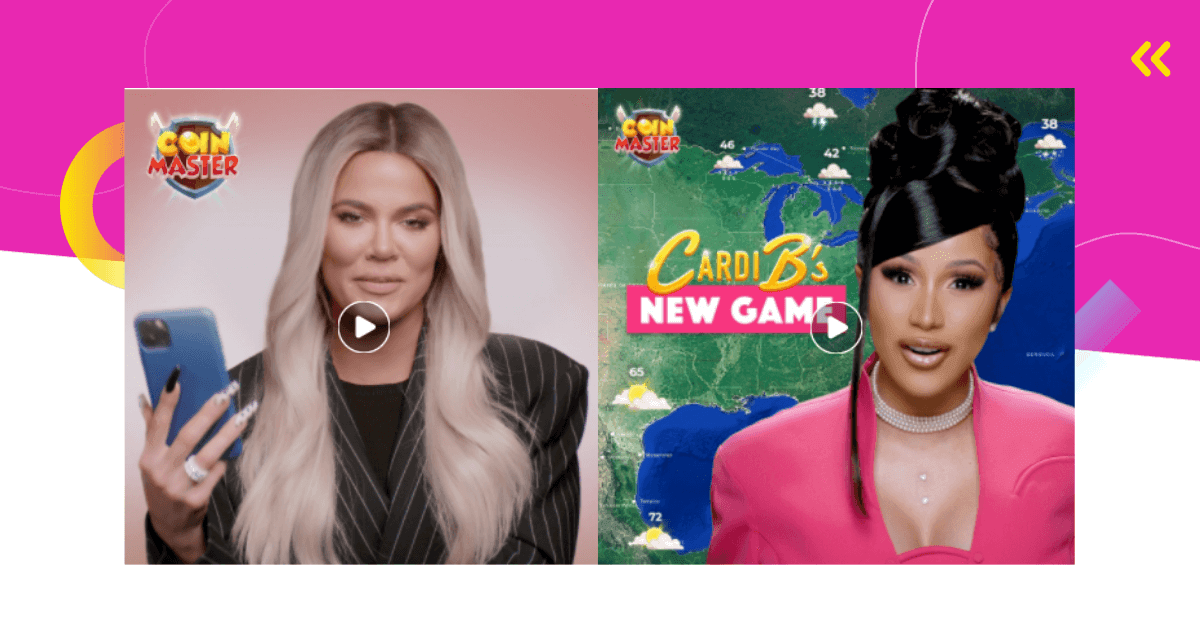Looking to boost IAP monetization?
You should consider implementing various game features that increase in-app purchase revenue, as well as boost retention.
I’ve put together a list of the most important ones for both retention and monetization, so don’t miss out on this article!
Game Features That Boost IAP Monetization
Let’s kick this off with features that boost IAP monetization. In this section, I’ll go over the most popular game features that are proven to increase revenue from in-app purchases.
What’s great about these features is that you can implement them in pretty much any mobile game, regardless of the genre.

Continue/Retry for Purchase
Continue/retry for purchase comes in many different forms. It can allow players to continue playing without losing score, retry a level, revive their character, etc. Basically, it offers players another chance to complete a level or a certain task.
Let’s be honest, nobody likes to fail and players oftentimes get impatient, which is why this IAP offer is quite enticing.
It’s quite a basic feature, but it can still boost IAP monetization. What’s great about it is that it can be utilized in most genres. For example, it can work incredibly well for casual games, as core gameplay is the main focus of this genre.
A good example of this is Candy Crush Saga. When players struggle to complete a match-3 puzzle, they get a retry option to purchase.
According to Facebook Gaming, in the top 20% of casual games, the utilization of this feature is 44%. The overall utilization in casual games is 21%. This tells us continue/retry is still underutilized in most casual games.

Characters for Purchase
This is traditionally a mid-core feature that has been brought into casual games as well, as it adds more depth and creates immersion.
For example, Archero, a hybrid casual game, offers characters for purchase. This shows you that this feature works for all game genres, even casual ones.
According to Facebook Gaming, 59% of top-grossing 20% of casual games utilize this feature, while the overall utilization in this genre is 47%.
As you might expect, RPG games, which are all about characters, have the highest utilization of this feature. According to Facebook Gaming, 92% of top role-playing games offer characters for purchase.
The main reasons why players purchase characters are their skills/ abilities/gear, or unique appearance/role/storyline.

Consumable Boost Items for Purchase
Consumable boosts refer to items that give players a temporary boost and are not attached to characters or buildings.
For example, Clash of Clans offers players various consumable boost items for purchase. The boosts are mainly spells, which players can use to become more powerful and advance through the game quicker. Similarly, in Heroes Charge, players can purchase experience potions.
While this game feature works great for more complex games, like strategies and RPGs, casual games can also benefit from implementing it.
According to Facebook Gaming, as much as 81% of top casual games have consumable boost items for purchase. The overall utilization of this feature among casual games is 67%. This tells you how popular and effective it is for this genre as well.

Decorative Skins and Other Accessories
Decorative skins and other cosmetic items are perfect for players who want something more from a game. What’s great is that they’re easy to implement as they’re not a part of the core gameplay.
Players like decorative skins for several reasons.
- They satisfy the players’ need to customize their character and express their identity
- New looks keep everything fresh
- Answer players’ desire to be dazzled by something new and unique
- Skins and accessories allow players to show off and differentiate themselves from other players
Because cosmetic items are highly desirable, they open up a new IAP revenue stream.
Games like Fortnite, PUBG Mobile, and Call of Duty Mobile are some examples of popular games that capitalize on decorative skins.
However, this feature is getting popular in the casual genre as well.
According to Facebook Gaming, in the top-grossing 20% of casual games, as much as 61% of them have decorative skins. The overall utilization of this feature among casual games is 42%.

Gear Items for Purchase
Unlike consumable boost items, gear items are attached to the character(s). They give players a competitive advantage, which is what makes them desirable. For example, it can be armor, weapons, building tools, or special items like amulets.
It’s important to note that gear items players can scale bring an additional layer of progression in games as there are more things to develop. Naturally, that aids a game’s economy and increases player spending.
While this is traditionally a mid-core/hardcore feature, more and more casual games implement it. According to Facebook Gaming, 47% of top casual games utilize this feature. The overall utilization of gear items for purchase is in casual games 36%.

Bundle Offers
Offering bundles that contain various items, currency, and other valuables is a highly effective strategy to get more in-app purchases. The key to doing this successfully is setting the right price. The package deal must appear valuable and cheaper than purchasing the items individually.
What’s great about bundle offers is that they can work for any game and you can create many different bundles according to players’ needs and wants. Furthermore, bundle offers work great with other features like events, for example. This is why this feature is present in all kinds of mobile games.
However, it’s particularly popular in casual games. According to Facebook Gaming, nearly all (98%) of the top 20% of top-grossing casual games utilize this feature. Overall utilization among casual games is 67%.

Piggy Bank System
This is another cool game feature that can significantly boost IAP monetization. You’ll find it in many casual, puzzle, and casino games like Fishdom, Homescapes, Clockmaker, and Slotomania.
It works pretty much like a real-life piggy bank. Players collect coins or other types of currency. With each level, the piggy bank gets more valuable.
But there’s a twist. Unlike real-life piggy banks, you can’t open them by smashing them with a hammer.
To access the piggy bank, players need to make an in-app purchase. The key is to make the piggy bank more valuable than regular offers.

Battle Passes
Battle passes are a type of season-based subscription where players unlock rewards by progressing through the game or completing certain tasks. The rewards often include characters, weapons, boosts, cosmetic items, currency, loot boxes, etc.
Most games have two different versions of battle passes – free and paid. Their concept is the same, however, when users pay, they get better rewards and other perks.
For that reason, battle passes are not only a monetization model but a retention feature as well.
Furthermore, because battle passes drive engagement, this also has an indirect effect on overall monetization, regardless if players choose the free or paid tier. In other words, because players need to reach certain goals, they’re inclined to spend more on other monetization mechanics.

Examples of Battle Passes in Mobile Games
Fortnite is a game that popularized this feature and made it mainstream in free-to-play games. Its battle pass costs 950 V-bucks, but the promised earnings players can achieve by playing go up to 1,500 V-bucks. Basically, players can earn enough currency to buy the second battle pass, which is quite appealing.
Fortnite also offers a premium subscription deal called Fortnite Crew which includes the battle pass, along with 1,000 monthly V-bucks, and an exclusive crew pack. This type of offer is great for players who want more, beyond just the battle pass.
Rise of Kingdoms is another top-grossing game with a battle pass called Lucerne Scrolls. It consists of 80 levels, while 54 levels are free. Like in other games, to get luxury rewards, players need to make an in-app purchase. Ancestor’s Legacy is free, but paying $5 unlocks extra rewards, and Divine Inheritance costs $19.99 and allows players to progress more quickly.
Even casual games have embraced battle passes. For example, Gardenscapes was one of the first games in this genre to offer this feature. Like most other games, Gardenscapes offers a free and paid battle pass, which costs players $5.
Interestingly, 31% of top-grossing casual games utilize battle passes, while the overall utilization is just 11%. (Facebook Gaming) According to GameRefinery, the utilization of battle passes in the US top-grossing 100 games (all genres), has doubled in 2021.

Loot Boxes
Loot boxes, and particularly bulk discount loot boxes, are another feature that incentivizes players to spend more in F2P mobile games.
Put simply, a loot box is an item players obtain either through playing or purchasing it. It contains random items, i.e., players don’t know what they’re going to get before they open the box.
Offering bulk discount loot boxes makes players spend more immediately, as purchasing bulk loot boxes increases their chances of getting the item(s) they’re after.
According to Greo’s research, 58% of top 100 Android games and 59% of top 100 iOS games utilize this feature. According to Facebook Gaming, only 16% of the top 20% of casual games offer loot boxes.
The loot box system is similar to gacha, which brings me to the next feature.

Gachas
Gacha is a controversial feature that was first popular in Japan but then gained traction in western mobile games as well.
Even though they’re similar to loot boxes, they’re not quite the same thing. Items players get from loot boxes can also be obtained in other ways, while gacha is a type of loot box that is the primary source of items players need in a game.
Due to its randomness, many call it gambling. However, gachas have drop rates – the players know the odds of getting the item that they want.
One of the most popular mobile games with the gacha feature is Genshin Impact, a role-playing game. In it, the gacha system is called Wishes or Banners. There are different ones, like Beginner’s Wish Banner and Limited-time Event Wish. By drawing single or multiple wishes in one go, players get the chance of unlocking a game character.
Game Features That Drive Retention
Having high retention positively influences monetization, which is why it’s essential for any mobile game. Without good retention, it’s nearly impossible to monetize a mobile game.
That’s why it’s important to add features that not only boost retention but create a solid foundation for monetization.
According to Facebook Gaming’s report Genre and Great Games, one of the most important reasons for playing mobile games is being dazzled by something unique. This can come in the form of various game features and unique content like live events, special playing modes, and collectible albums.
While most of the features on this list are traditionally mid-core and hardcore features, they’re also popular with many casual and hybrid casual games. In other words, your game can benefit from these features regardless of the genre.

Live Events
Live events are a great retention hook as they bring new content and experience to players. Furthermore, they keep the game fresh and exciting, without having to change or update the core game. However, you can use live events to test out new mechanics and see how players react to them.
There are two main types of live events – recurring and non-recurring. The former refers to live events that come back from time to time. The latter refers to one-time live events that won’t be repeated.
We advise that you use a combination of both.
Holiday-related live events are particularly successful – they would fall into the category of recurring live events. Most people have more free time during the holidays, so it’s a good idea to get players engaged with extra content.
An example of a live event in mobile games is Fishdom’s Lucky Horseshoe. It’s a limited-time event that players can participate in if they’re level 24 or higher. The goal is to beat levels on the first try.
The type of live events you should include depends on your game and your userbase. The best way to find out what your players like is to test different events.

Event Versions of Characters
During live events, it’s a good idea to let players acquire special versions of characters, which are exclusive during a particular event.
There are a couple of different reasons for that.
Firstly, that makes live events more appealing, as the opportunity to get a special character is a nice incentive.
Secondly, players tend to form emotional bonds with these characters. When a new event version of that character becomes available in the store, they’re more likely to buy it.
And finally, having event versions of characters boost the overall enjoyment of the game, as this is something special.

Special Playing Modes
Introducing special playing modes is another way to boost retention and subsequently increase IAP monetization. They have new rules, mechanics, or goals, which makes them different from the core game, and thus more exciting.
Because of that, special playing modes can make your game more versatile and stickier.
This is a popular trend for many different mobile game genres, but it has become increasingly prevalent in casual and puzzle games. For example, there’s a special playing mode in Candy Crush Saga called Dreamworld. It’s a standalone map in the game and it includes a new mechanic.
What’s great about special playing modes is that you can tie them in with other features like decorative items or collectible albums.
That brings me to the next game feature that can boost both retention and IAP monetization.

Collectible Albums
Collectible systems like collectible albums are a feature that has been steadily growing in popularity. According to GameRefinery, the percentage of top-grossing games that use this feature has grown from 21% in 2017 to 72% in 2021.
Like many other features, collectible albums usually appear as a part of a meta-layer. In this type of system, players can collect items like cards, characters, skins, accessories, etc.
It adds depth to a mobile game, which benefits casual games in particular, but also games in other genres. What’s more, collectible systems drive retention.
There are many examples of collectible albums in mobile games. For example, in PUBG Mobile, there’s a Season Gallery where players can see the cosmetic items they’ve collected during events. When they complete their collection, they get rewarded.
In Cash Frenzy, players can collect stamps and add them to their collection.
Whatever it is that players are collecting, it’s important that these items are valuable and desirable i.e., worth collecting, and that players get a reward for their collections.

Guild Mechanics
Guild mechanics is another mid-core feature that has become quite popular in casual games. That comes as no surprise, as social features are one of the biggest mobile gaming trends.
Communal playing is something many players enjoy and oftentimes playing with others is what brings them back to a game. Guild mechanics are also the foundation for many other social features like co-op challenges.
More on that in the next section.

Co-op PvE Play
Co-op PvE stands for cooperative player versus environment. Collaborating with other players to defeat a common enemy or work towards a goal is something many gamers enjoy. It’s all about the social aspect of gaming. However, it also brings new challenges, which makes it exciting.
This is another traditionally mid-core feature that we now see in many casual and hybrid casual games. A great example is Archero, where a player can team up with a friend to defeat monsters.
As you might imagine, this drives engagement and retention as playing with a buddy is infinitely more fun.

Communal Tasks and Challenges
Team challenges are another way to reinforce the social aspects of a mobile game. When players need to work together to complete a task or reach a goal, it makes them feel accomplished and creates a sense of community.
It’s easy to see how that makes players more engaged.

Regular In-Game Tournaments
Some players like working together with other gamers to achieve a common goal. Others enjoy competing against other players and winning.
For competitive players motivated by beating others, in-game tournaments are a very desirable feature. What’s particularly important is the ability to compare rankings.
Players want to see how well they fare against others. That’s easily accomplished by implementing leaderboards into a game. This motivates them to be better and makes them feel accomplished. Both of those feelings tend to result in more engagement.
Boost IAP Monetization: Final Thoughts
We’ve come to the end of our list of features that boost IAP monetization and increase engagement and retention.
Which ones will you implement in your game and why? Let me know in the comments!







Comments